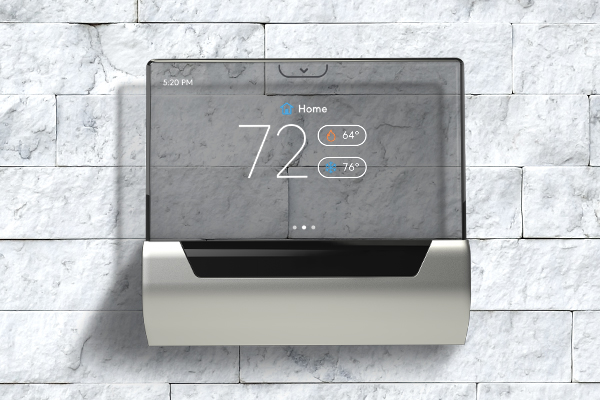Disruptive Technologies Named Property Tech Company Of The Year
Disruptive Technologies, the creator of the world’s smallest wireless sensors, has been named the Property Tech Company of the Year at the Global Business Tech...
Read Full Article
More than half of global organisations plan to increase energy efficiency spending in the next 12 months according to the Johnson Controls' 2018 Energy Efficiency Indicator Survey.
The survey identifies smart building measures as the most likely place to see spending including on building controls and building systems integration.
The survey of nearly 2,000 facilities and energy management executives from 20 countries found that 57 per cent of organisations in the United States and 59 per cent of global organisations plan to increase investment in energy efficiency in the next year.
Drivers
The survey says corporates are now looking to spend money tackling issues that affect their brand status such as greenhouse gas footprint reduction, energy reduction and security. To achieve green, net zero energy and resilient buildings, HVAC equipment improvements and lighting upgrades are on the budget along with building controls improvements.
Building system integration saw a 23 per cent increase in respondents planning to invest in 2019 compared to 2018, the largest increase of any measure in the survey.
Storage and generation
"Organisations are more interested than ever in leveraging energy efficiency, energy storage and distributed generation technologies to deliver smarter, safer and more sustainable buildings," said Clay Nesler, vice president, Global Sustainability, Johnson Controls. Globally, plans to invest in distributed energy generation, electric energy storage and on-site renewables also increased year-over-year.
Energy security
Due to increasingly severe weather incidents around the world, the 2018 Energy Efficiency Indicator Survey (EEI) results also highlight a growing global focus on resilience and energy security. One third of US and global organisations (32 per cent and 33 per cent respectively) believe the ability to maintain critical operations during severe weather events or extended power outages is extremely important when considering future energy and building infrastructure investments.
Off grid
Roughly half of US and global organisations (54 per cent and 50 per cent respectively) are extremely or very likely to have one or more facilities able to operate off the grid in the next ten years.
Ten year shift
Analysis of the annual survey results from 2008 to 2018 revealed dramatic shifts in energy efficiency goals, actions and investments throughout the past decade.
In 2008, very few respondents (8 per cent) had any certified green buildings and only one-third (34 per cent) planned to certify new construction projects to a recognised green standard. This year, 19 per cent of US organisations have already achieved voluntary green building certification for at least one of their facilities and 53 per cent plan to in the future, a combined increase of 31 per cent over the past year alone.
Globally, 14 percent of organisations have achieved voluntary green building certification for at least one of their facilities and 44 per cent plan to in the future.
Employee retention
In 2008, less than one-third of respondents (30 per cent) believed green buildings would be very important in attracting and retaining future employees. In 2018, 44 per cent of US organisations, and 51 per cent globally, are willing to pay a premium to lease space in a certified green building.
Net zero energy
The survey also saw a significant year-over-year increase in net zero energy goals, with 61 per cent of US organisations extremely or very likely to have one or more facilities that are nearly zero, net zero or positive energy/carbon in the next ten years, up 14 per cent from last year.
Picture: Johnson Controls have taken a thermostat reading of the global desire to invest in smart buildings and energy controls - and the temperature is rising!
Article written by Brian Shillibeer | Published 22 November 2018
Disruptive Technologies, the creator of the world’s smallest wireless sensors, has been named the Property Tech Company of the Year at the Global Business Tech...
Read Full ArticleThe £3.1 million scheme to decarbonise Arup’s headquarters at 8 Fitzroy Street is now complete. Dalkia has delivered the validation, detailed coordination,...
Read Full ArticleLuke Gorman from ABM explores the impact of HVAC on the environment and how facilities management now functions as a strategic ESG partner. Luke graduated from...
Read Full ArticleHVAC manufacturer Artus has launched a white paper challenging the building sector to consider what is really impeding the move to greater carbon control. The paper...
Read Full ArticleIn an era where sustainability is not just a buzzword but a necessity, the focus on achieving net-zero targets has significantly influenced the realm of facilities...
Read Full ArticleEnergy Security Secretary Grant Shapps has announced several new energy management measures, including a commitment to carbon capture and the introduction of “Great...
Read Full ArticleFirst announced in January 2021 by His Royal Highness Mohammed bin Salman, Crown Prince of Saudi Arabia and Chair of the NEOM Company Board of Directors, THE LINE is...
Read Full ArticleGraphenstone is the most sustainably certified paint brand in the world. We spoke to Patrick Folkes, the hedge fund and smoothie entrepreneur who has brought the...
Read Full ArticleA pilot project to create a smart energy system in Thames Valley has successfully connected four of West Berkshire Council’s sites to the growing network. The...
Read Full ArticleHow will the intersection of retrofits, smart homes and digitally transformed building maintenance help the UK to achieve net-zero emissions by 2050? Nik Flytzanis,...
Read Full Article